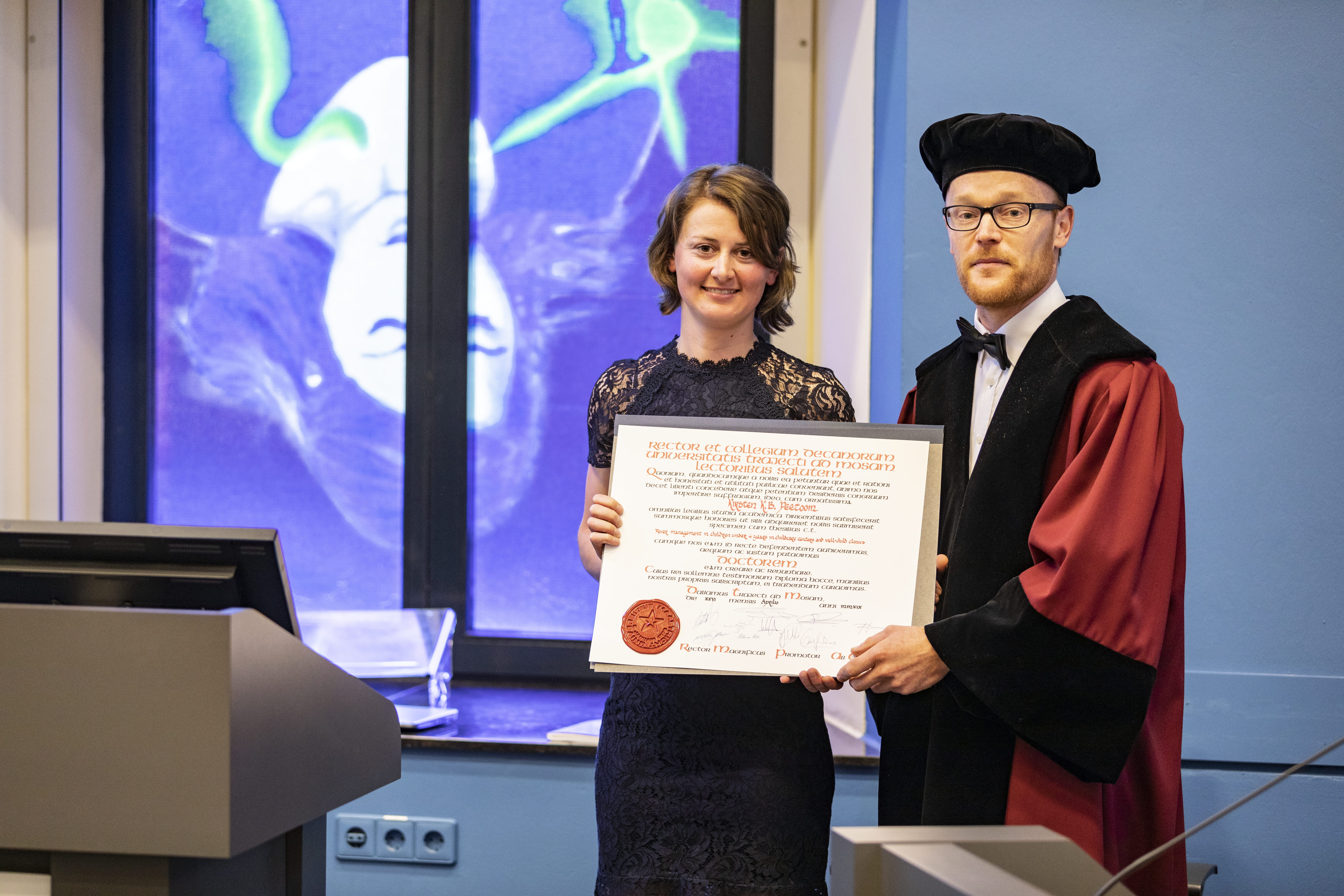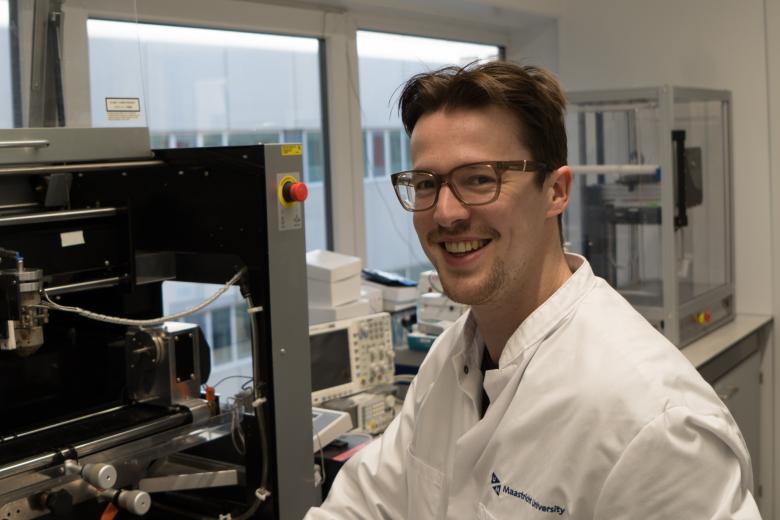Look beyond the thermometer
In 2019 many misunderstandings about children with a fever still occur, including among pedagogical staff at childcare centres. Consequently, children are wrongly sent home, sometimes with the advice to “go and see a doctor”. To reduce the number of feverish children unnecessarily visiting the GP, Kirsten Peetoom developed a “decision tree” for pedagogical staff at childcare centres. She recently won the Catharina Pijls Prize for her dissertation, for which she received her doctoral degree on 26 April 2019 at UM.
The Catharina Pijls Dissertation Prize is awarded biennially by the eponymous foundation to a dissertation that promotes health sciences in the broadest sense. The applicability of scientific research is of paramount importance, which is also what attracted Kirsten Peetoom to this project of the Department of General Practice. “I wanted to avoid doing research that would only end up on a shelf somewhere.”
Knowledge about fever could be better
Peetoom’s supervisor, general practitioner and professor Jochen Cals, previously supervised Eefje de Bont, who also did research into children with fever visiting GP surgeries. “We discovered that many children with a fever go to the doctor based on advice childcare centre staff give to the parents. The parents trust this advice because the staff have a great deal of knowledge and experience with children,” says Peetoom. But like parents, these professionals’ knowledge about children with fever isn’t always accurate.
An objective checklist helps, as does gut feeling
Eighteen childcare centres in South Limburg, half of which received an intervention and the other half not, participated in the PhD study. Peetoom has developed a “decision tree”: a large sheet of paper on which employees can tick what precisely is bothering the child and thus clearly see what action is required. “One’s gut feeling remains very important, but this decision tree also provides a good objective checklist for deciding whether a child should stay or go home, or see a doctor.”
Teething doesn’t cause a fever, toys do
How the child further responds and functions is particularly important. Occasional vomiting and loss of appetite need not require sending a child home. In contrast, more than three days with watery stools is. As well as the decision tree, the employees in the intervention group received a two-hour training session to improve their knowledge, with a general practitioner and a pharmacist. “The discussions were often fascinating,” says Peetoom. “Many people think that teething causes fever. But children in this phase actually chew a lot of contaminated toys.” We could also refute the idea that a very high fever is immediately dangerous, because fever can fluctuate very quickly in young children.
The results: less fear and more self-assurance
Peetoom couldn’t prove that the childcare centres which worked with the intervention sent sick children home less often. “The reason might be that circumstances only allowed us to measure for three months, and the flu season’s peak was earlier than expected.” However, the employees appeared to be more assured in dealing with feverish children and were less worried that fever could have harmful consequences. “Where we presented the intervention group with cases of children with fever and related symptoms, we noticed they were less likely to advise seeing a doctor.”
Using an implementation subsidy from ZonMW, the Department of General Practice will further promote the method at childcare centres throughout the country. Peetoom is now working as a postdoc researcher at the Alzheimer Centre Limburg.

Also read
-
UM to play a more prominent role in Dutch scientific infrastructure
Eleven consortia from various scientific disciplines are set to launch projects of great value to science. The Dutch government is making a total of €197 million available for this purpose. Scientists from Maastricht University (UM) are closely involved in seven of the eleven projects.

-
17 million for Dutch mega cohort: working together to build healthier ageing
MUMC+ is main applicant in the NCC: a unique research infrastructure with data from almost half a million Dutch citizens.
-
Letting bone and cartilage repair themselves
Tim ten Brink focuses on developing implants for damaged bone and cartilage, so eventually there is less need for invasive surgery.
